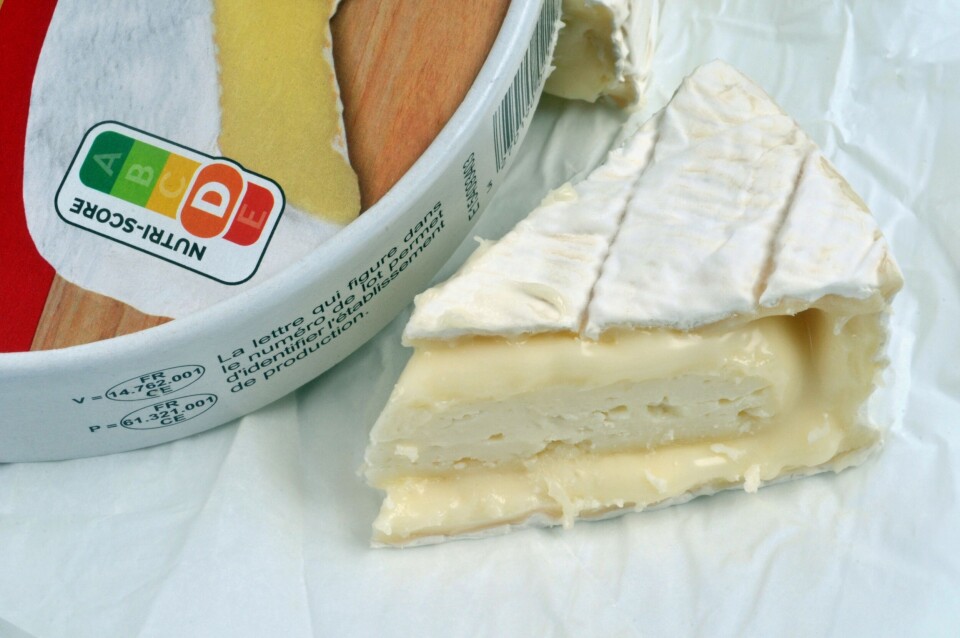-
New Paris-Jersey direct flight to launch this summer
Loganair route forms part of Channel Island’s tourism boost plan
-
Death of right-wing protester in Lyon sparks fears of further political violence
Quentin D, 23, died after reportedly being ambushed by far-left activists near site of political conference
-
Red flood alerts continue in south-west - and more heavy rain expected
Garonne river is particularly affected. French weekly weather forecast February 16 - 20
Why Nutri-score gives A to factory chips and E to farmers’ cheese
The Connexion speaks to the Nutri-score founder amid questions about the scores given to some food

France’s Nutri-score food ratings serve to inform shoppers about products’ nutritional content but should not be regarded as the ultimate authority on the healthiness of food, its founder has told The Connexion.
Nutri-score gives items a score from A to E – A being the most healthy and E the least – based on their ingredients, sugar content, salt and/or fibre content etc. Nearly 700 food companies in France reported using the system as of June 2022, states the national health body Santé publique France. However, it is not mandatory.
Dr Serge Hercberg, the French epidemiologist and nutritionist who designed the A-E green-to-red system, spoke to us after questions were raised by producers, consumers and the media about some ratings.
For example, industrially-produced chips, crisps or pizza have an A to B score while artisanal cheeses are graded with the lowest E grade, TF1 reports.
Read also: ‘Best before’ food labels are changing in France to reduce waste
Nutri-score system ‘built on scientific data’
Dr Hercberg confirmed the algorithm behind Nutri-score will be updated in early 2023 to include more findings from new research on food health benefits. He said the grading system was built on scientific data and has received significant support.
“Chips are pre-cut and come from potatoes. They are low in salt and sugar. The nutrient composition does not have indicators of unhealthy content,” he said, adding that the addition of ketchup and mayonnaise is often what makes them unhealthy.
Dr Hercberg added that companies often include information on how the grading would change depending on how consumers cook the chips, explaining that they would keep their A rating if cooked in the oven and be downgraded to B if cooked in low-fat oil.
“Now, Roquefort is loaded in salt, saturated fat and calories,” he said, components that are considered unhealthy or carcinogenic.
Cheese producers have criticised the fact that Nutri-score’s system limits their products to a D rating at best, arguing that they need to keep their ingredients the same to continue qualifying as products worthy of Appellation d’origine protegée (AOP.)
Dr Hercberg says he is aware that AOP products respect long standing traditions with regards to ingredients and recipes but that he wants producers to warn consumers of the health risks of consuming such products in large quantities. He said he is not asking for a change in their composition.
However, two out of every three products that are locally produced have a Nutri-score grading from A to C, according to a survey by the consumer organisation UFC-Que Choisir in May 2022.
Dr Hercberg advised consumers to look for products containing fruits, vegetables and fibres that are low in salt, sugar and saturated fats when trying to buy healthier foods.
Nutri-score’s system has been backed by more than 100 studies showing that it provided information on food-associated health risks.
More than 94% of French people said that they take notice of Nutri-score rating with 50% having changed at least one buying habit as a result, according to a government study published in February 2021, three years after the system was implemented.
New grading coming in 2023
Nutri-score will change its grading system in early 2023, as part of an update to its algorithm that happens every three years..
The update will result from new scientific research on nutrition.
Red meats will be downgraded after many studies showed it can contribute to the development of colon cancer when consumed in large quantities.
Likewise, sugary products will also be graded more severely, with cereals being moved to a C rating from A.
Different types of milk will be differentiated more clearly, with added sugar taken into account. Many very salty products will be downgraded to D and E.
Ready-meal products will generally be downgraded from A/B to B/C.
However, Nutri-score could still be facing problems after Claire Bury, deputy director for food durability at the European Commission, told Politico in September that the system will no longer be the nutritional indicator used in Europe.
Ms Bury’s comments are the result of active lobbying from agricultural industries that have criticised the rating for being too simplistic and harsh on some products, such as cheese, according to UFC-Que-Choisir.
Related articles
French food nutrition labels to change in line with health advice
Camembert losing out in battle for France’s favourite cheeses
























